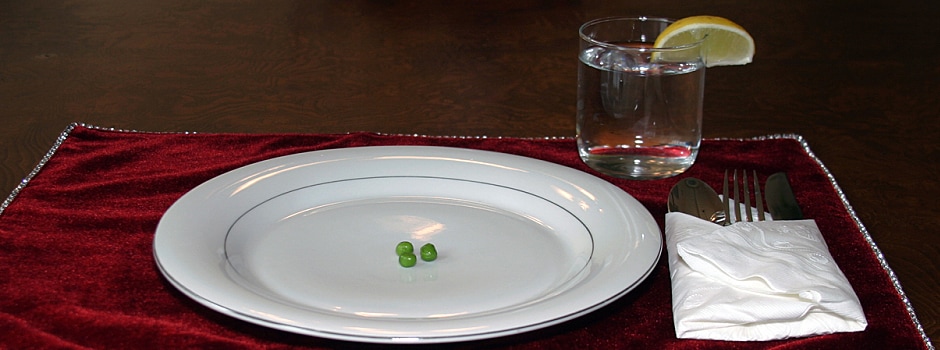While most people think of not eating enough to be a method for losing weight, it can actually take quite a toll on your body. Luckily, there are healthier, more realistic ways to lose weight. Here's what you should know about the harm that not eating enough can have on your body, plus some tips and alternatives on how to lose weight in a healthy way.
Caloric Needs
A variety of factors go into assessing an individual's caloric needs, including gender, age, height, weight, and level of activity during the day. Calculators are available online to help you quickly and easily determine how many calories you should be aiming to consume per day.
Dietitians say that losing one to two pounds per week is a safe and healthy rate. One pound is equivalent to 3,500 calories, and if you divide that by seven (number of days per week), you have 500 calories per day that need to either be omitted from your diet or burned with exercise. Many people like to split that number by eliminating 250 calories from their daily intake and exercising enough to burn an additional 250 calories per day. While the weight-loss process is slightly more complicated than this, any calorie restriction beyond 500 calories per day can start to take a toll on the human body.
Effects of Not Eating Enough
Ranging from mild to severe, there are a number of negative side effects that can occur if you don't eat enough. The production of red blood cells and the brain are both fueled solely by carbohydrates in the form of glucose. When you don't provide your body with enough fuel, it first taps into the carbohydrate stores found in the muscles and liver. After those stores are depleted, fuel will start to be extracted by muscle breakdown because the byproducts can be converted into glucose. The process of breaking down muscle significantly slows your metabolism because muscle cells are the most metabolically active aspect of your body and dictate how much fuel you need daily.
Another side effect of this process is the preservation of fat. Fat is not only stored as a last-resort source of energy, but it's also your body's least preferred energy source. Also, while your body is in a state of starvation, it takes all possible measures to preserve itself, such as slowing down the heart rate, which slows blood flow and further reduces metabolism. In other words, muscle is lost while fat is retained.
When you don't eat enough, your digestive tract is also often severely impacted. The mucous membranes in the stomach and intestines have a variety of roles, including nutrient absorption, injury response, and immune function. When your body is underfed, these mucosal cells can die off, severely impacting your gut's functionality. This can result in the malabsorption of nutrients, which can lead to malnutrition, diarrhea, abdominal pain, and electrolyte imbalances. Once your body starts receiving adequate nutrition again, these mucosal cells can regrow, but it, along with regular gut function, can take some time.
Micronutrient deficiencies are another effect of undereating. Potassium and phosphorus are electrolytes that play a key role in regulating heart rhythms. When blood levels of these nutrients are critically low, changes in heart rhythm and even cardiac arrest can occur. Inadequate calcium levels can reduce bone density, a lack of B vitamins can result in dry skin and nails, low vitamin K can cause bruising and difficulty healing wounds—the list goes on and on. These issues just scratch the surface of what can happen if your body is malnourished.
Losing Weight in a Healthy Way
Proper nutrition is essential for every body system to work properly. Luckily, there are many ways to achieve this while still losing weight. Here are a few tips.
- Avoid restricting daily caloric intake by more than 500 calories.
- Focus on eating balanced meals. Refer to Harvard's Healthy Eating Plate for a helpful visual.
- Make activity a priority. Losing weight doesn't always have to mean sacrificing food. Striking a balance between cutting empty calories and increasing activity is the best way to lose weight while retaining muscle.
- Hydration is incredibly important when trying to lose weight because it will allow your body to work as efficiently as possible.
- Cut out the foods that aren't doing your body justice, such as processed foods, foods that are high in sugar, and excessively salty or fatty foods.
While significantly reducing how much you eat may seem like the best way to lose weight, restricting yourself too much can cause your body harm. By understanding how the body reacts to undereating, you can take steps toward losing weight the healthy way.
